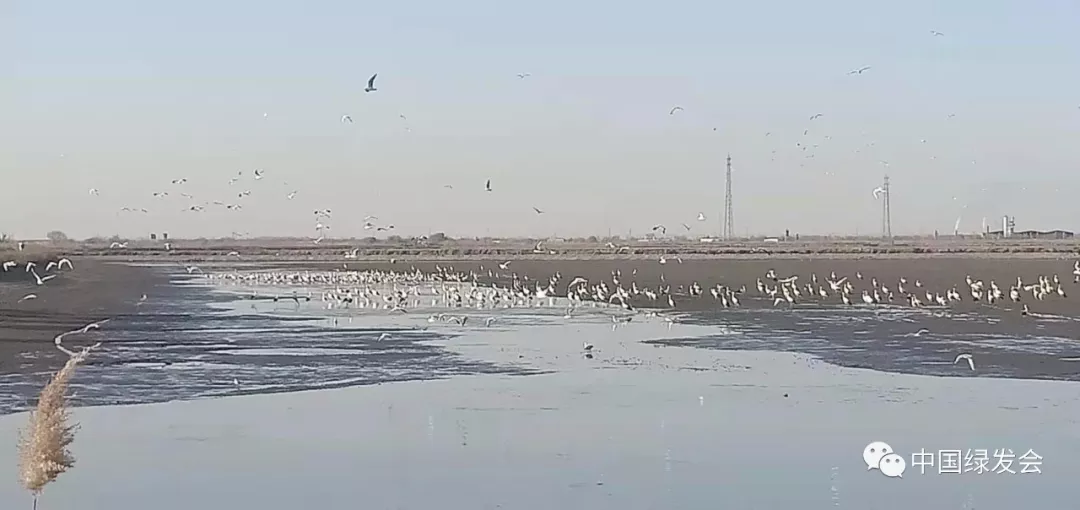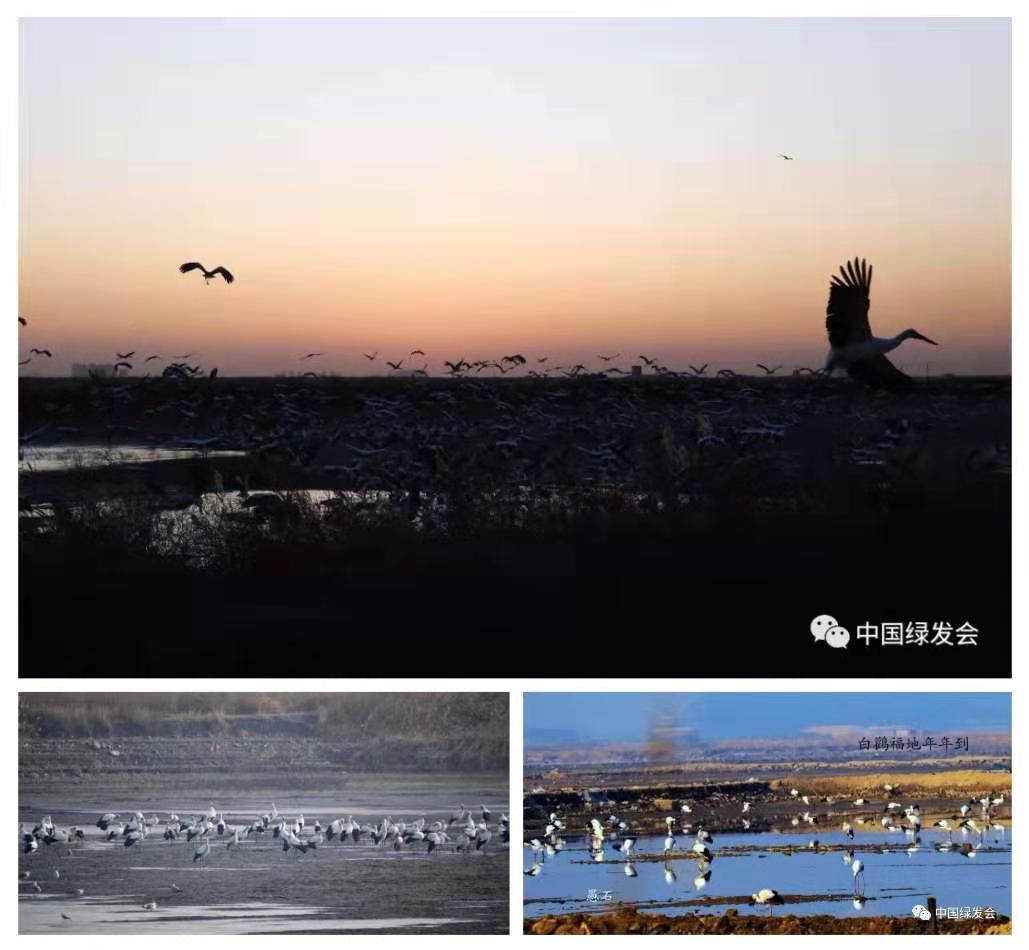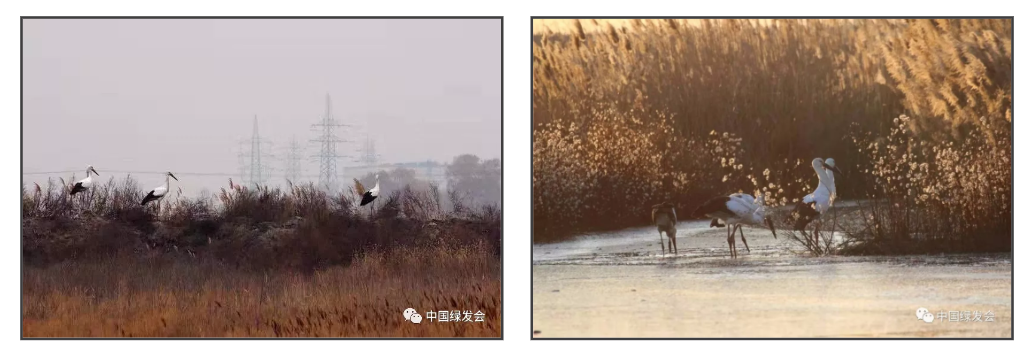Tianjin has abundant freshwater resources, and the wetlands near the sea are important "gas stations" for migratory birds to migrate. Different levels of nature reserves have been established. However, since this year, the Oriental stork has not gone to these protected areas to find food but went to private fishponds outside the protected area to find food for hunger. What is the reason?
During several consecutive days of investigation, the team from China Biodiversity Conservation and Green Development Foundation (CBCGDF) made a rough inspection of nearly 700,000 acres of wetlands, and found that this year an important reason for the Oriental stork to "stray" for food is that the protected area has been established, although the conditions well, the management is also methodical, but there is no food suitable for Oriental storks. At present, the relevant departments of Tianjin City have demanded that all districts and counties should increase the protection of Oriental storks during the peak migration period and try to compensate some fishermen who have suffered losses.
The team was in a private fishpond near the reservoir in the Binhai East District of Tianjin. When inquiring about the scene, groups of Oriental storks flew there to grab fish to eat, so that sometimes the guardians of the fishpond had to use some means to drive them. This year's group of Oriental storks went there to grab food, which did cause them a certain degree of economic loss.
The Qilihai Wetland in Tianjin is the largest natural wetland in Tianjin and is located on the path of migratory birds. According to local volunteers, the flocks of Oriental storks there may have moved from Hebei or flew back after foraging. The management of the Qilihai Wetland Reserve is relatively strict, and no Oriental storks have been found on the shallows of the wetland. However, in the deep waters, more than 200 Oriental storks were found.
It is understood that during the large-scale renovation of the Qilihai Wetland last year, the fishponds once rented out in the wetland were also recovered. The owners of the fishponds can only take the opportunity to dry the fishponds and fish out. This year, after the wetland was irrigated and full, although the management of the wetland released fry, the deeper water level made it impossible for the Oriental storks looking for food during the migration to find fish to satisfy the hunger.
In Tianjin's Dahuangpu Wetland Reserve, the team saw a fishpond full of water, but did not see the Oriental storks, where the number of migratory birds was significantly smaller. According to media reports, starting in September 2018, some village in this protected area were included in the ecological protection red line of Tianjin. The management committee of the wetland has carried out a series of work around the improvement of the ecological environment.
In Tianjin’s Beidagang Wetland, 100 to 200 Oriental storks were found last year, and a small number were found this year. The management of Beidagang Wetland Nature Reserve is relatively strict. According to local volunteers, the reservoir there last year was relatively shallow, and the Oriental storks were able to forage. But this year the reservoir is almost full, and the water level is too high, and it is no longer suitable for Oriental storks to find food there.



(Photo credit: CBCGDF and volunteers)
Original Chinese article:
http://www.cbcgdf.org/NewsShow/4854/10568.html
By / Maggie
